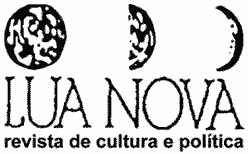Abstract
This article analyzes speeches given at the 31 meetings and public hearings held in 2017 and 2018 at the Special Commission that analyzed Bill 7180, of 2014, known as Nonpartisan School (ESP, in the Portuguese acronym) project. Our aim is to verify which issues their defenders present and how they justify the proposed actions. The analysis of 265 individual manifestations of parliamentarians and guests allowed to identify the supposed idea of indoctrination of the students as the main problem pointed out. We depart from the theoretical debate on de-democratization, specially the analysis that discuss the privatization as a way of capture of the public and the collective, as well as the expansion of the authoritarian control of conducts. Engaging with them, we analyze the empirical evidence organizing the discourses on three fronts, which correspond to the set of actions pointed out by ESP defenders to stop “indoctrination:” a) the expansion of the private to the detriment of the public; b) the censorship of agendas and actors; c) the retraction of the state’s commitment to egalitarian agendas. We conclude that these are the elements that constitute the de-democratization process of education in the country.
Keywords:
De-democratization; Nonpartisan School; Chamber of Deputies; Public and private; Family
